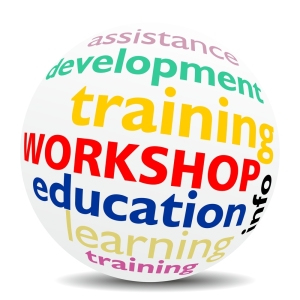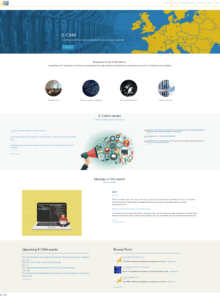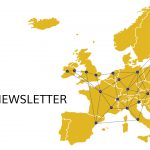This paper from E-CAM partners working in Scuola Normale Superiore (Pisa, Italy) describes a novel statistical procedure, developed to optimize the parameters of non-bonded force fields of metal ions in soft matter. The paper is open access and can be downloaded directly from ACS’s page at http://pubs.acs.org/doi/10.1021/acs.jctc.7b00779.
This work was performed in the context of the E-CAM pilot project on Quantum Mechanical Parameterisation of Metal Ions in Proteins, which is a collaboration with BiKi Technologies. The list of software modules associated to the pilot project (and this publication) can be found here.
Article
Title: Force Field Parametrization of Metal Ions from Statistical Learning Techniques
Authors: Francesco Fracchia, Gianluca Del Frate, Giordano Mancini, Walter Rocchia, and Vincenzo Barone
Abstract: A novel statistical procedure has been developed to optimize the parameters of non-bonded force fields of metal ions in soft matter. The criterion for the optimization is the minimization of the deviations from ab initio forces and energies calculated for model systems. The method exploits the combination of the linear ridge regression and the cross-validation techniques with the di˙erential evolution algorithm. Wide freedom in the choice of the functional form of the force fields is allowed since both linear and non-linear parameters can be optimized. In order to maximize the information content of the data employed in the fitting procedure, the composition of the training set is entrusted to a combinatorial optimization algorithm which maximizes the dissimilarity of the included instances. The methodology has been validated using the force field parametrization of five metal ions (Zn2+, Ni2+, Mg2+, Ca2+, and Na+) in water as test cases.




 In our fifth newsletter, we highlight the programme of events 2017, and present the profiles of the new Project Technical Manager, Ignacio Pagonabarraga, and the Project Coordinator, Ana Catarina Mendonça. We describe the nature of the E-CAM extended software development workshops and the outputs from these events in 2016, and present a report from the E-CAM second General Assembly. A summary of the deliverables due during period covered by the Newsletter is also presented. An opinion piece by Prof. David Ceperley poses the question “Does our simulation community need EXASCALE?”, and offers his perspective.
In our fifth newsletter, we highlight the programme of events 2017, and present the profiles of the new Project Technical Manager, Ignacio Pagonabarraga, and the Project Coordinator, Ana Catarina Mendonça. We describe the nature of the E-CAM extended software development workshops and the outputs from these events in 2016, and present a report from the E-CAM second General Assembly. A summary of the deliverables due during period covered by the Newsletter is also presented. An opinion piece by Prof. David Ceperley poses the question “Does our simulation community need EXASCALE?”, and offers his perspective.